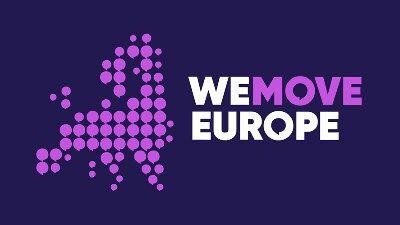Early this morning, and after several months of negotiations, the European Commission, the European Parliament and the Council of the EU are understood to have reached an agreement to address the harmful practice of the EU’s plastic waste trade, in the context of the revision of the EU Waste Shipment Regulation. The Rethink Plastic alliance and Break Free From Plastic applaud the landmark decision to end plastic waste exports to non-OECD countries in two and a half years but regret that the EU institutions did not agree to stop exporting its plastic waste to all countries. The details, including whether safeguarding policies for intra-EU shipments have been adopted, are yet to be published.
The EU Waste Shipment Regulation outlines obligations for all waste traded both within the EU and exports to third countries. For many years it has been evidenced that EU plastic waste shipments pose unique and significant issues and so specific measures were needed to address this particular waste stream.
The reason for such measures are clear. The plastic waste trade causes significant environmental and human health harm, which is exacerbated by illicit waste trafficking and recycling capacity displacement. The EU is one of the largest producers of plastic waste per capita, one of the largest exporters of plastic waste in the world and is battling significant levels of waste crime, both within the EU and beyond, as a result of continued exports and a lack of safeguarding policies. By way of example, in 2022 the EU exported more than one million tonnes of its plastic waste to countries where plastic waste imports have been mismanaged, dumped or openly burned: 50 per cent of it went to non-OECD countries like Malaysia, Vietnam, Indonesia and Thailand whilst 33 per cent was shipped to Türkiye alone.
As such, the Break Free From Plastic movement and the Rethink Plastic alliance have been strongly advocating for the EU to end the export of plastic waste outside the Union and EFTA, to both OECD (e.g. Türkiye) and non-OECD (e.g. Malaysia) countries in addition to highlighting the need for increased safeguarding policies for intra-EU shipments.
In November 2021, the European Commission published a legislative proposal seeking to ensure that the EU does not export its waste challenges to third countries, make it easier to transport waste for recycling and reuse in the EU, and to better tackle illegal waste shipments. While the details of what has been agreed have yet to be communicated in full, it seems that exactly two years after the publication of the proposal, the European Commission, the European Parliament and the Council agreed that:
- Exporting plastic waste to non-OECD countries is to be prohibited within 2.5 years
- Obligations for exporting plastic waste to OECD countries is to be strengthened
- Shipping of waste destined for disposal in another EU country to be allowed only exceptionally
Expert voices
Lauren Weir, Senior Campaigner at the Environmental Investigation Agency (EIA) on behalf of the Rethink Plastic alliance commented:
“While the details of what has been agreed have yet to be communicated in full, we are relieved to hear that the EU has agreed to ban EU plastic waste exports to non-OECD countries, whilst enacting stronger safeguarding measures for exports to OECD countries. Whilst this is an improvement to current obligations, the evidence of the harms and necessity for a full plastic waste ban are clear. This is a signal that the EU is finally beginning to take responsibility for its role in the global plastic pollution emergency. It is now for EU Member States to ensure that every effort is made so that future EU plastic waste exports are managed in an environmentally sound manner and do not negatively impact the recycling capacities of recipient countries – whether this is possible remains to be seen. Huge congratulations to all the advocates and communities around the world who made this outcome a reality and to the EU policymakers who took a stand.”
Dr. Sedat Gündoğdu, a microplastics researcher at Çukurova University in Türkiye commented:
“The ban of plastic waste exports to non-OECD countries is a significant decision, however, it is disappointing to not see a total export ban on shipments – and not even a ban on hazardous and mixed plastic waste – to Turkey, which is both the largest importer of plastic waste in the EU and an OECD member. We know from past practices that partial bans and ineffective content controls do not prevent the illegal circulation of plastic waste. While this decision represents a step forward in the right direction, these new regulations imply that Turkey may be exposed to more EU plastic waste. The crucial point here is how to ensure that there are no negative environmental impacts and that waste management infrastructure is not adversely affected. Now, our only option is to strive for the environmentally sound management of future exports of EU plastic waste by EU Member States and to ensure that it does not adversely affect the waste management of importing countries. I hope this is not simply wishful thinking.”
Pui Yi Wong, with the Basel Action Network and based in Malaysia added:
“Many of us living in non-OECD countries face relentless illegal dumping, open burning, and microplastic pollution in the vicinity of plastic recycling facilities. We are reassured that the EU has heard our pleas and is acknowledging the horrific impacts caused by over-consumption of plastic and the export of its waste. Time is ripe for other high-income countries to also take responsibility – the USA, the United Kingdom, Japan, among others. We look forward to a world where countries focus on reducing plastic production and waste, instead of sending waste abroad. We stand in solidarity with OECD recipients of EU plastic waste, where evidence of pollution and harm caused by imported plastic waste has been clear.”
The agreement found today will have to be formally adopted by the European Parliament and the Council in the coming weeks. To complement the measures in the Waste Shipment Regulation, the Rethink Plastic alliance and Break Free From Plastic movement call on the EU and its Member States to support robust legally binding provisions on plastic waste trade in the international legally binding instrument to end plastic pollution that is currently being negotiated under the auspices of the United Nations. In addition, to ensure packaging waste to manage is reduced, we call on the European Parliament and the Council to support ambitious measures on packaging waste prevention as well as on reuse systems for packaging in the context of the ongoing revision of the Packaging and Packaging Waste Regulation.
Contact : Paul Newman, EIA UK Senior Press & Communications Officer, via [email protected] or +44 (0) 20 7354 7983
Notes for editors:
- More than 180.000 people signed a joint petition from the Rethink Plastic alliance, the Environmental Investigation Agency, the #BreakFreeFromPlastic movement, Eko and WeMove, urging the EU to ban plastic waste exports to both non-OECD and OECD countries. The petition was delivered to EU decision-makers before this last decisive meeting.
- The Rethink Plastic alliance’s top 5 recommendations for the revision of the Waste Shipment Regulation can be found here.
- Please refer to Rethink Plastic alliance and EIA’s Truth behind Trash and Plastic Waste Power Play reports for background on the impact of the global plastic waste trade.
About:
Rethink Plastic is an alliance of leading European NGOs, representing thousands of active groups, supporters and citizens in every EU Member State. We are part of the global Break Free From Plastic movement, consisting of over 11,000 organisations and individuals worldwide demanding an end to plastic pollution.
The Environmental Investigation Agency (EIA) investigates and campaigns against environmental crime and abuse. Its undercover investigations expose transnational wildlife crime, with a focus on elephants, pangolins and tigers and forest crimes such as illegal logging and deforestation for cash crops such as palm oil. It works to safeguard global marine ecosystems by addressing the threats posed by plastic pollution, bycatch and commercial exploitation of whales, dolphins and porpoises. Finally, it works to avert climate catastrophe by strengthening and enforcing regional and international agreements that tackle short-lived climate super-pollutants, including ozone-depleting substances, hydrofluorocarbons and methane, and advocating corporate and policy measures to promote transition to a sustainable cooling sector and away from fossil fuels. It uses its findings in hard-hitting reports to campaign for new legislation, improved governance and more effective enforcement. Its field experience is used to provide guidance to enforcement agencies and it forms partnerships with local groups and activists and support their work through hands-on training.



